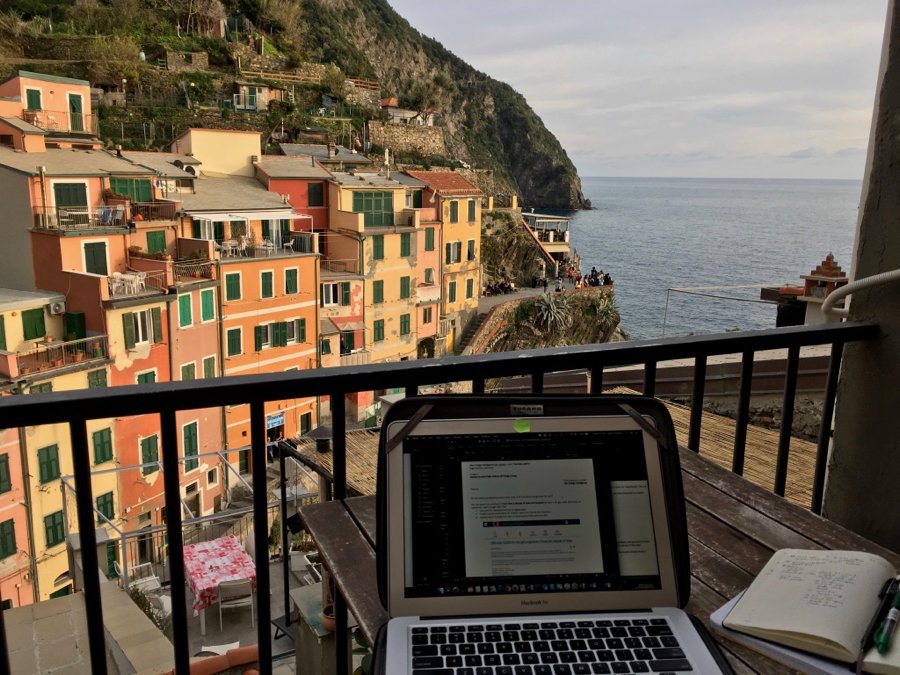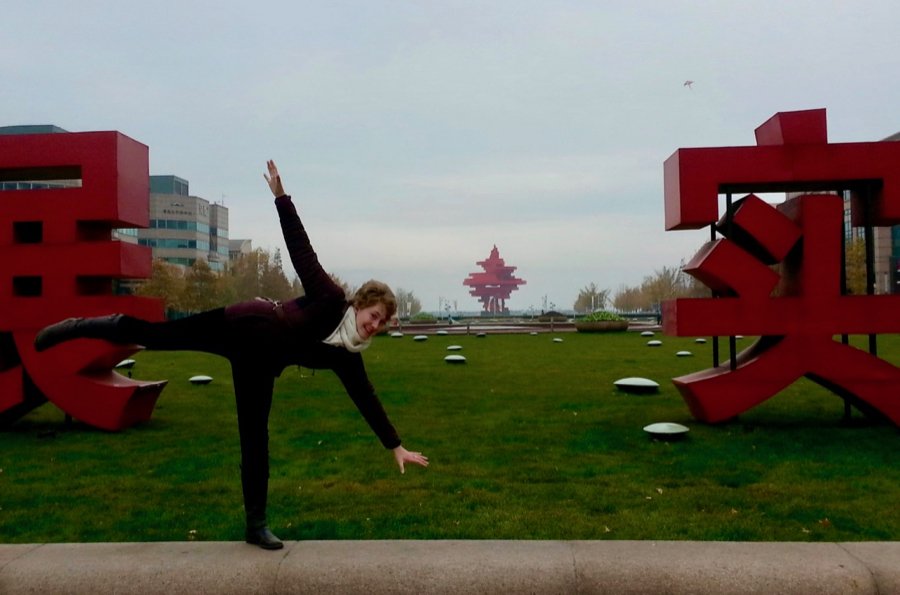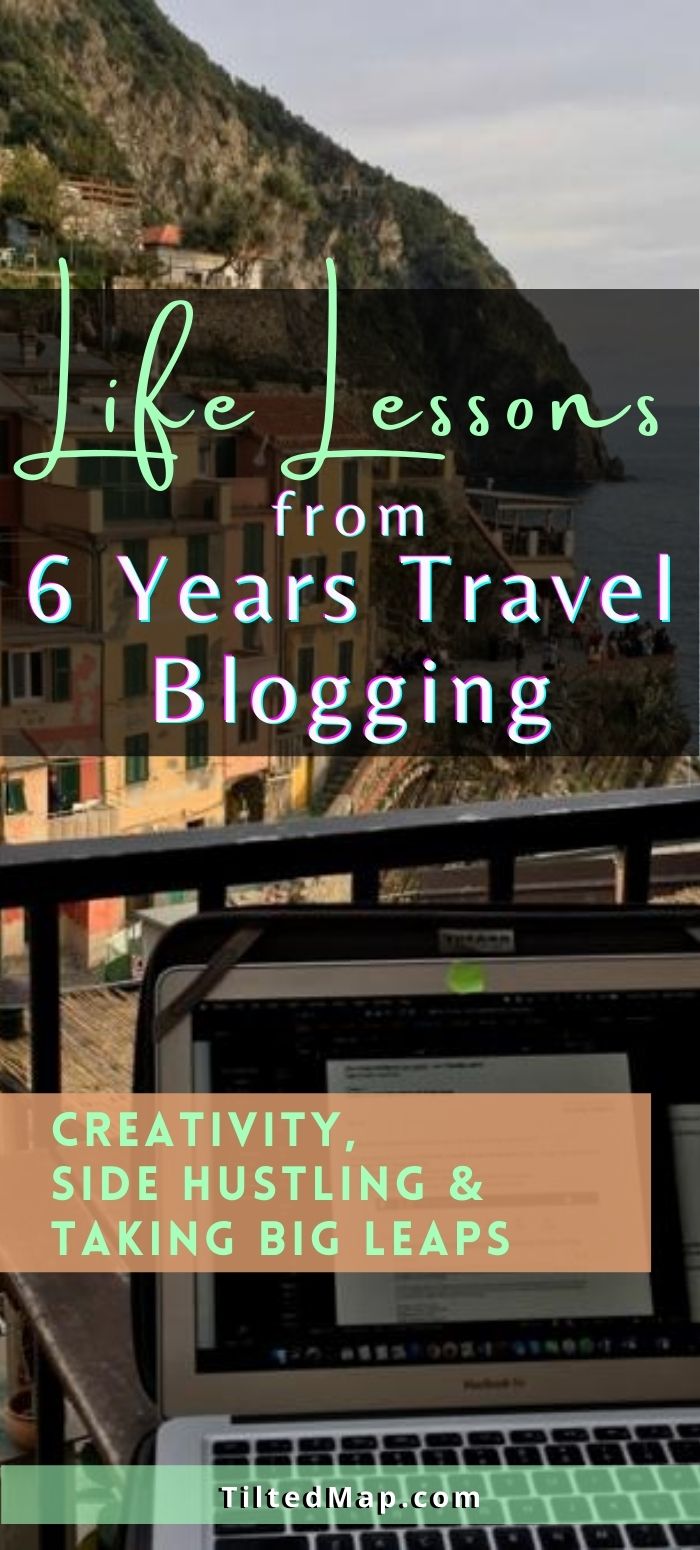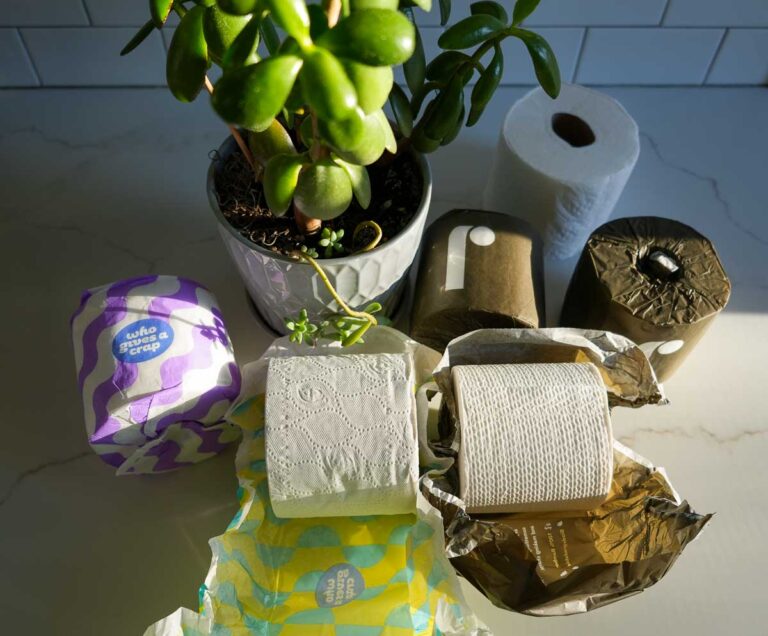12 Life Lessons from 6 Years of Travel Blogging
If you’re looking for technical blogging advice, this is not it. This post is not about websites; it’s about life, creativity and small businesses, and what I’ve learned from very slowly building a travel blog into a business.
1. If you’re trying to figure out what you want to do for a career, look at the thing you can’t stop doing.
I renamed this blog Tilted Map just a few months ago (great timing to relaunch a travel blog… right as the world went on lock-down). But I’ve been travel blogging since 2014.
Not full-time, not professionally, and at no time in those six years have I yet made anything near a full-time income from blogging. I’ve always done something else for money – translations, being a barista, having a marketing job in an office in France, writing for travel magazines and other websites, teaching English in China, guiding trips in Nicaragua and Guadeloupe, living cheaply, and eventually going back to school to figure things out.
But throughout all of that, I’ve never stopped blogging. I haven’t even considered giving up – even during the years when I only posted two or three times because I was in grad school, or just totally unsure what to do.
The fact that I just kept doing it, through everything else, is part of how I realized I could do this full-time.

2. Whatever you’re doing, seek out a network.
My regular friends don’t have any idea what I’m talking about when I’m excited about a new WordPress plug-in, or confused about a change in the Pinterest algorithm, or wondering why my site speed has suddenly taken a dive, and why I can’t clear my cache for mobile browsers…
It’s okay if these things don’t mean anything to you, they’re techno mumbo jumbo. But talking to other bloggers about them is like therapy. They get it, they commiserate, and they can offer more helpful advice than, “I’m sure you’ll figure it out…” (Thanks mom, but you have NO IDEA how confusing Java Script coding is…)
So whatever it is that you do or love – that your friends and family just don’t get – go find people who do get it.
This is doubly true if what you do is something solitary like blogging. Sometimes I get lonely when I’m working on the internet all day, so please do say hello!
3. Sometimes you need to drop everything and start fresh.
This is the most recent lesson that I’ve actually accepted, after at least three years of thinking about it.
Remember, I started blogging six years ago, on a simple site called Ketti Wilhelm dot com. I had just finished my bachelor’s in journalism and was on my way to China for a year to teach and write and see the world. I thought I wanted to be an old-school, freelance foreign correspondent, filing life-and-death stories for big magazines from all around the world. So before I left, my computer-programmer housemate helped me build a site that I would use as a portfolio for my freelance articles, and maybe share a few blog posts as a bonus.
Then everything changed. I realized I did want to be a foreign correspondent, just not for scandals and wars and politics, but for culture and food and travel.
And eventually I also realized I wanted to build my own business and brand, and be in control of what I wrote and when.
But I kept using that original website and debating whether I should change until… this year. (2020.)
It was a huge decision to pick a brand name and figure out all the technical aspects of a new website, so I’m glad I didn’t rush into it. Sure, I could say it would have been nice if I’d committed sooner, because I’d be so much further ahead right now. But I could always say that, no matter when I started. The important thing is to just start.
Now that I have, I’m so glad I took the leap. It feels like a breath of fresh air to let go of something that wasn’t working for me anymore. (And if you make a big change and hate it, there’s a good chance it can be undone.)

4. Keep learning from the pros…. then remember to do whatever you want.
My very first post on my original blog was one line: “Patience. I’m working on many things. One of them is moving to China. Another is this site.”
More like a tweet than a blog post! In fairness, travel blogging was quite different back then (2014 is like an internet century ago) but not that different. I remember typing the first words that came into my mind, as I was playing around with my brand new website, and clicking publish without a second thought – something I never do now.
I’ve since learned that:
1. Nobody wants to read something short and glib and unhelpful (that first post is an extreme example) and
2. Google thinks websites are spammy if they publish posts with less than a few hundred words, and
3. Most people will be more interested in writing that isn’t all about me – at least most people who don’t know me. And if any writer is going to be successful, online or off, they’ll eventually need readers who aren’t personal acquaintances.
They weren’t perfect, but I do love how those early travel blog posts I wrote were completely unfiltered.
People loved some of them – it may not have been my most useful travel writing, but it was interesting. (I mean, I was a Westerner living in China and not sugar-coating what the experience was like. Of course that’s going to be fun to read.)
So now I try to keep a balance between the kind of writing the experts say I should be doing (like detailed, useful posts that require mind numbing amounts of research) and writing whatever I want – and whatever I think my readers will enjoy.
Because you could be reading the New York Times or National Geographic right now, but you’re reading Tilted Map instead. It’s not because my writing is better, but because there’s a market for everything, no matter how small. With all the studied perfection out there, people want to see some reality and read about personal experiences, too.
Don’t let your effort to optimize whatever you’re doing and follow the rules take the personality out of your work.

5. Just. Ask. (Questions)
A long time ago, when I was interning as a newspaper reporter in California, I learned that Yes, there are dumb questions – or at least questions that will make some people think I’m dumb. But I don’t have to care.
I ask those questions anyway, and sometimes I do it knowing the person will think I’m dumb, just so I can see what their reaction will be and how they’ll answer. You can learn a lot about a person (and when it comes to travel writing, you can learn a lot about a place) from both of those.
It’s almost always better to ask than to wonder.
6. Just Ask For Things, Too.
I’ve always footed my own travel bills, usually by getting jobs abroad, and using those as my base from which to travel. But I recently got up the gumption to contact a sustainable travel company that I thought would be a perfect fit for this blog and ask if they’d host me on a trip. As in, “Will you take me sailing for a week for free so that I can write about it?”
The answer was a much quicker “yes” than I ever imagined.
It took me six months to send that email because I wanted to finish a major post about sustainability first, to prove that I really knew what I was talking about and was really committed to the topic of eco-friendly travel. And it worked! The CEO of the company liked the post and okayed the trip.
(Then of course, 2020 happened, so the trip has been delayed. But still – I was accepted.)
Even though I was prepared before I asked, it still felt like a leap over a canyon to say, “Hey, do you think I’m good enough?”
No amount of preparation would have changed that.
7. You’ll never be as prepared as you could be.
Trying to understand when you’ve done enough to take the next step can be maddening. “Done is better than perfect,” but when is the thing you’ve been pouring your time into really good enough to be done?
It’s a matter of practice and knowing your craft to recognize when you’ve hit the mark – before driving yourself crazy striving for perfection. This has always been difficult for me. I have to remind myself that Yes, it could always be better, but if I don’t eventually put it out there (and tell people about it!) it’ll never be anything at all.
With practice, I’ve gotten better at making that call. Also, Elizabeth Gilbert’s book Big Magic was brilliantly therapeutic for getting over these creative hang-ups and dealing with perfectionism. (You can order it on Amazon or from the indie seller Bookshop, which is a far better company to support.)
8. Everyone’s got an opinion – and that will feel both wonderful and terrible.
The internet troll is such a trope that it might be easy to forget they actually exist if you don’t work online (or read the comments on social media). Like the guy who commented on the first Italian recipe I published that the pasta looked “too dry to swallow,” and suggested that I “just throw it in the bin.”
Sometimes I actually carry on discussions with these trolls on my Facebook and Instagram pages, just to keep the algorithm happy. (Because social media sites want “engagement,” so if there’s a conversation going in the comments of a post – even an obnoxious one – then the algorithms will show that post to more people.)
Pro tip: It’s not worth it. I’ve stopped.
Something that is worth it, that I still do, is take screenshots of all the positive, appreciative, and supportive feedback I get, and keep them in a special album on my phone called “Blog Love.” Because in addition to the asshole who thought he could identify a dry pasta through a computer screen without making the recipe, there was the stranger who said she made my recipe and loved it, and took the time to put a photo in the comments. That made my day.
9. Most successful people are still people.
And most businesses are people’s babies. Not Walmart-type businesses, but restaurants, small travel companies, even influencers. It’s easy to forget – when we’re on the outside looking in at someone successful and well known – and think, Why would they care about hearing from me? Or why would they care about the obnoxious comment I make? (Uhh, have you ever seen Mean Tweets?)
Maybe they won’t, but in my experience both giving and receiving genuine feedback from strangers, people do care. I wrote a blog post listing Italian restaurants I love, some of which are in the Michelin guide – so clearly they don’t need my help to make a name for themselves. But I still got sincere notes back from almost every restaurant owner thanking me for including them.
Keep that in mind the next time you’re considering either typing out a mean and sarcastic comment, or telling someone you appreciate their work. (If it’s the second one, please do it.)

10. It doesn’t have to be fun all the time to be fun.
Some days working on this blog feel like the start of a huge adventure that’s destined to be amazing, and others feel so overwhelming it’s hard to see any point at all in continuing. I’m sure this is the way it feels running any business.
Some of my regular tasks are a slog, but some tasks in every job are a slog.
Here’s the thing: You know the difference between a job that has parts you love and parts you wish you could outsource, and one that makes you want to bang your head against the wall. If it’s the latter, then it’s okay to pivot.
But…
11. You might not know if you like it or love it until you push yourself.
Treating this blog more like a business and less like a hobby has made the ups and downs feel more manageable, or at least more expected. I’m taking it more seriously and putting more time into it, but I still want to keep that spirit of joy and exploration from when it was just a hobby (and when I didn’t mind publishing a post with a dozen words – see #4).
I started blogging because I loved to travel and write and talk to people.
Then, when I decided to take it to the next level, I realized I also enjoy some of the other parts of the job that I hadn’t even known existed: Playing with the jigsaw puzzles of website code, and toying with the magic potion of SEO. Finding partners to work with in lots of different industries, and interviewing experts for some posts (like when I’ve written about VPNs, or about plastic-free Greek islands).
I used to think I couldn’t ask for an interview for an article that was “just for my blog,” but now that I’m taking my blog seriously, I’ve realized I should do whatever will make my writing better and more interesting for my readers. So I’m circling back to my roots and approaching blogging a little bit like journalism.
But before all that?
Before I pushed myself to take this blog seriously? The only other aspects of blogging that I knew were things I didn’t really love – like editing photos (tedious) and being active on social media (in case you hadn’t noticed, your grandmother probably has more Instagram followers than me).
If I had decided whether to keep blogging back when I was still treating it like a hobby, I would have looked at the 4 parts of the job that I knew about – traveling, writing, photography, and social media – and thought, “If I only love 2 out of 4, maybe this isn’t for me.”
Instead, I jumped in and discovered that those 2 tasks that don’t come so easily were 2 out of 20, not 2 out of 4. And I never saw that coming.
12. You can quit your day job, but don’t give up your hobbies.
I regularly dream about this blog. Not about winning awards, or my posts going viral, or even the trips I take. Boring, hideously realistic dreams where I’m sitting at my desk, looking for an error in an entire screen full of code.
Or figuring out a solution to make that one widget look how I want it. (I once actually dreamed a solution that worked.)
Or just typing away in a Word doc. No context; no story. I just dream that I’m typing.
And that’s fine. It’s still fun to me, and feels like a hobby that I love and get to spend all day on. So I don’t even mind when I wake up thinking about “work.”
But if I didn’t maintain my real hobbies that are completely unrelated to this blog – like getting outside to hike and ski, taking trips that I don’t even write about, baking cookies, and playing the Brazilian martial of capoeira – then I would probably lose my mind.

I hope you got something useful from this! Whether you’re a blogger or writer or something else, I’d love to know which parts resonate – whether you’re just getting started, right here with me, or way out ahead of me.







